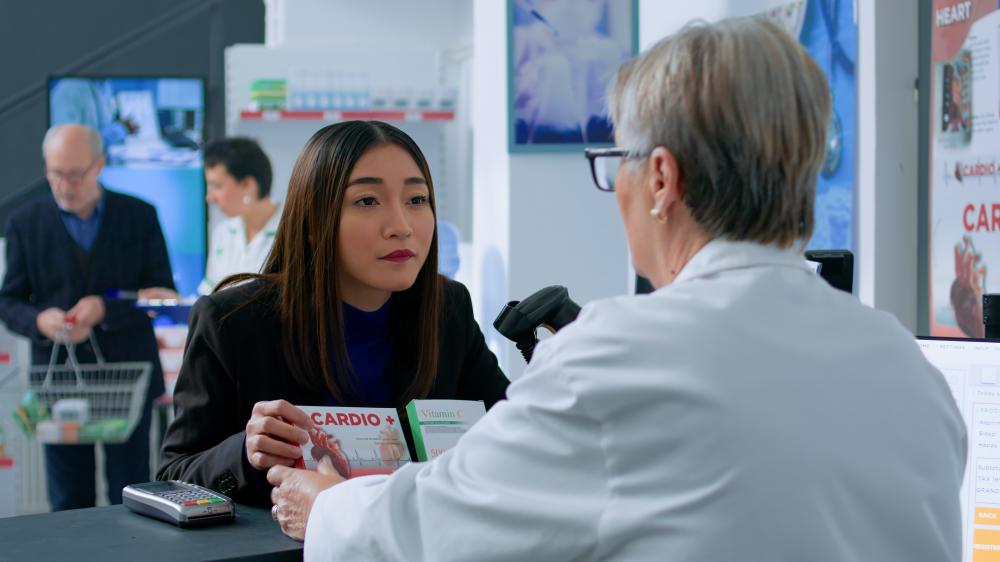
Introduction to Life Line Screening Reviews
At Senior Care Nation, we are dedicated to helping you make informed decisions when it comes to healthcare and wellness, especially as it concerns the senior, boomer, and retiree communities. In line with our commitment, we’ve delved into the world of preventive health screenings, focusing specifically on Life Line Screening. Life Line Screening has garnered attention for offering a variety of non-invasive health screenings. These screenings aim to detect potential health issues before they become serious. Here, we provide a detailed look into life line screening reviews to give you the insights needed to decide whether they’re right for you or your loved ones.
What Is Life Line Screening?
Life Line Screening offers community-based health screenings designed to detect risk factors and early signs of certain health conditions. The services are primarily geared towards adults over the age of 50 and include screenings for cardiovascular diseases, stroke, liver function, kidney function, diabetes, and more. The company prides itself on providing non-invasive procedures conducted by healthcare professionals, with results reviewed by board-certified physicians.
Accuracy and Reliability of Screenings
One of the most crucial factors when considering any health service is the accuracy and reliability of its procedures. Life Line Screening utilizes state-of-the-art technology for its non-invasive tests, which are performed by trained technicians. Results are then reviewed by board-certified physicians, adding an extra layer of scrutiny. Personal anecdotal evidence from our community members who have utilized these services suggests a high degree of satisfaction regarding the accuracy of the tests and the professionalism of the staff.
Customer Experiences with Life Line Screening
Positive Feedback
In sifting through various life line screening reviews, a pattern of positive feedback emerges. Many appreciate the thoroughness of the screenings and the professionalism of the technicians. For instance, a community member recounted how a screening detected a health issue early enough that it could be addressed promptly, potentially saving her life.
Areas for Improvement
No service is without its areas for enhancement, and Life Line Screening is no exception. Some reviewers expressed desires for more comprehensive explanations of their results or faster delivery of these findings. It underlines the importance of clear communication between healthcare providers and clients to ensure understanding and satisfaction.
Cost-Effectiveness of Life Line Screening
Another important consideration is whether the cost of Life Line Screening aligns with its value. The consensus among many in our community is that the screenings offer significant value, especially for those without symptoms. Since preventive screenings are often not covered by insurance until symptoms manifest, Life Line Screening provides an affordable alternative for early detection of potential health issues.
Navigating Insurance and Payments
While preventive screenings might not always be covered by health insurance, Life Line Screening accepts various payment options, including health savings accounts and flexible spending accounts. It’s crucial to check with your insurance provider and the screening service to understand what financial arrangements can be made. This proactive approach ensures no surprise bills.
Making an Informed Decision
Choosing to participate in preventive health screenings is a personal decision that should be made based on a variety of factors, including individual health history, current health status, and financial situation. Life Line Screening offers a range of screenings that many find beneficial for peace of mind and early detection of health issues. However, it’s essential to consult with a healthcare provider to discuss whether these screenings are appropriate for you.
Final Thoughts on Life Line Screening Reviews
After a comprehensive review of life line screening reviews, it’s evident that Life Line Screening is a reputable service offering valuable preventive health screenings. While no service is perfect, the positive experiences of many individuals, coupled with the professionalism and accuracy of the screenings, make Life Line Screening an option worth considering for those interested in staying ahead of potential health issues. At Senior Care Nation, we always recommend doing your due diligence and consulting with healthcare professionals when considering new health services.
- Non-invasive and painless screenings
- Reviews by board-certified physicians
- Affordable alternative for early detection
- Variety of payment options, including HSA/FSA
Remember, preventive health screenings are just one part of a comprehensive health plan. Regular check-ups with your healthcare provider, a balanced diet, and regular exercise are also crucial for maintaining good health at any age.
Contact Us
If you have a product or service you believe would benefit our community, or if you have any more questions about life line screening reviews, feel free to reach out to us at Senior Care Nation. Our mission is to empower you with the information necessary to make informed healthcare decisions. Join our community today and tap into a wealth of resources designed with your health and wellness in mind.

Is Life Line Screening really worth it?
Deciding on whether Life Line Screening is worth it boils down to a few key factors, including personal health history, family health history, and your approach to healthcare management. For individuals over 50, or for those with risk factors for cardiovascular diseases, stroke, and other conditions Life Line Screening tests for, the screenings can indeed be a proactive step towards maintaining health. Early detection of potential issues is crucial in managing or preventing complications. From the feedback we’ve received, many community members found that the peace of mind and potential to catch issues early made these screenings a valuable part of their healthcare routine. However, it’s essential to balance this with the understanding that these screenings are supplements, not substitutes, for regular check-ups with your healthcare provider.
What does Life Line Screening consist of?
Life Line Screening offers a variety of non-invasive tests to detect early warning signs of certain health issues. These screenings primarily focus on cardiovascular health, including tests for carotid artery disease, atrial fibrillation, peripheral arterial disease, and aneurysms. They also offer screenings for bone density to assess osteoporosis risk, liver and kidney function screenings, and diabetes risk assessments through hemoglobin A1c tests. These screenings are designed to be quick, painless, and conducted in community settings like churches or community centers, making them easily accessible for many adults over the age of 50.
Are ultrasound screenings worth it?
Ultrasound screenings, part of Life Line Screening’s offerings, have their place in preventive medicine, especially when considering conditions like abdominal aortic aneurysms and carotid artery disease. The real value in ultrasound screenings lies in their ability to provide real-time images of the body’s internal structures without radiation exposure. This makes them a safer option for repeated use. For individuals at risk or without obvious symptoms of diseases that can be silently dangerous, ultrasound screenings can be life-saving. However, it’s crucial to have these screenings conducted as part of a broader health assessment, guided by a healthcare professional’s advice.
How long has Life Line Screening been in business?
Life Line Screening has been operational since 1993, making it a well-established player in the field of preventive health screenings. Over the decades, they have expanded their services across the United States, providing screenings to millions of people. Their longevity in the healthcare industry speaks to the demand for their services and the trust they have built with their clients. This enduring presence also reflects their adaptability to advancements in medical technology and changes in healthcare needs among the aging population.
How does Life Line Screening navigate insurance and payments?
Navigating insurance and payments for services like those offered by Life Line Screening can be a concern for many. While preventive screenings might not be covered by all health insurance plans, especially if you haven’t yet shown symptoms, Life Line Screening has worked to make their services accessible by accepting various forms of payment. This includes health savings accounts (HSAs), flexible spending accounts (FSAs), and major credit cards. They’re upfront about costs, helping to prevent any surprise bills. It’s always a good idea to contact your insurance provider and Life Line Screening ahead of your appointment to discuss your payment options and any coverage you may have. This way, you can make informed decisions about your healthcare investments.
Resources
- Centers for Disease Control and Prevention (CDC) – The CDC is a leading national public health institute in the United States, offering valuable information on various health topics and services.
- National Institutes of Health (NIH) – The NIH is the primary agency for conducting and supporting medical research, providing reliable health information and resources.
- Medicare.gov – Medicare is a federal health insurance program, and their website offers information on coverage, benefits, and preventive services.
- National Cancer Institute (NCI) – The NCI is the federal government’s principal agency for cancer research and training, offering comprehensive resources on cancer prevention and treatment.
